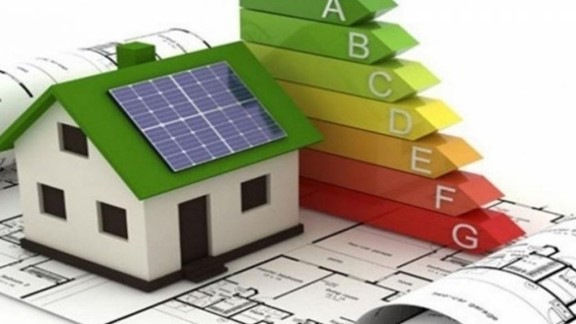Energy communities
Home » GRANTED PROGRAMS » Energy communities
Exoikonomo 2021-22

You may communicate with us to prepare and apply for your home Energy saving upgrade on the ‘Exoikonomo 2021-22 Granting Program”
Energy communities
Energy communities
The Energy Community is an urban cooperative with the sole purpose of promoting the social and solidarity economy, as defined in par. 1 of article 2 of law 4430/2016 (AD 205), and innovation in the energy sector, the treatment of energy promoting energy sustainability, the production, storage, self-consumption, distribution and supply of energy, enhancing energy self-sufficiency and security in island municipalities, as well as improving energy efficiency in end-use in local and regional level, through the activity in the sectors of Renewable Energy Sources (RES), High Efficiency Cogeneration of Electricity and Heat (S.I.TH.Y.A.), the rational use of energy, energy efficiency, sustainable transport, demand and production management, distribution and supply of energy.
Members of an Energy Community can be:
- a) Private individuals with full legal capacity,
- b) legal entities under public law outside the local self-government organizations (OTA) of first and second degree or legal entities under private law.
- c) Ο.Τ.Α. degree of the same Region in which the seat of the Energy Community or their enterprises is located, except for article 107 of law 3852/2010 (AD 87),
- d) Ο.Τ.Α. b΄ degree of the seat of the Energy Community, except for article 107 of law 3852/2010.
The minimum number of members of the Energy Community is:
- a) Five (5), if the members are legal entities under public law outside the Local Authorities. or legal persons under private law or natural persons,
- b) three (3), if the members are legal entities of public or private law or private individuals, of which at least two (2) are Local Authorities,
- c) two (2), if the members are only O.T.A. first degree island areas with a population of less than three thousand one hundred (3,100) inhabitants according to the latest census.
At least fifty percent (50%) plus one of the members must be related to the place where the seat of the Energy Community is located and in particular the private individuals-members have full or partial ownership or usufruct in a property located within the Region of the seat of the Energy Community or to be citizens of a municipality of this Region, while the legal member entities have their seat within the Region of the seat of the Energy Community.
Legal entities under public law and OTA α΄ and β΄ degree can participate in more than one Energy Communities as members by way of derogation of par. 3 of article 2 of law 1667/1986.
Energy Communities in which at least fifteen (15) members or ten (10) participate in the case of Energy Communities based in an island municipality with a population of less than three thousand one hundred (3,100) inhabitants according to the latest census, and 50% plus one of them are natural persons, they can distribute to their members the surpluses of the year after the deduction of the regular reserve 10%, if there is a relevant provision in the articles of association. The condition of the majority participation of natural persons of the previous paragraph, must be met during the establishment of the Energy Community and throughout its duration.
The Energy Community is required to carry out at least one of the following activities:
- a) Production, storage, self-consumption, or sale of electricity or thermal or refrigeration energy from RES stations. or Σ.Η.Θ.Υ.Α. or Hybrid Stations located within the Region where the headquarters of the Energy Community is located or within a neighboring Region for an Energy Community based within the Region of Attica,
(b) management, such as the collection, transport, treatment, storage or disposal of raw materials for the production of electrical or thermal or refrigerant energy from biomass or bioliquids or biogas or through the energy recovery of biodegradable municipal waste;
(c) supply for members of energy products, appliances, and installations, with the aim of reducing energy consumption and the use of conventional fuels, as well as improving energy efficiency.
(d) supply for members of electric vehicles, hybrid or not, and vehicles using alternative fuels in general.
- e) distribution of electricity within the Region where it is located; f) supply of electricity or natural gas to final customers, according to article 2 of law 4001/2011 (AD 179), within the Region where its seat is located.
- g) production, distribution, and supply of thermal or cooling energy within the Region where it is located.
- h) demand management to reduce electricity end-use and representation of producers and consumers in the electricity market.
- i) development of a network, management, and operation of alternative fuel infrastructures, in accordance with Law 4439/2016 (AD 222) or management of means of sustainable transport within the Region where the seat of the Energy Community is located; j) installation and operation of water desalination units using RES. within the Region in which the seat of the Energy Community is located,
- k) provision of energy services, in accordance with article 10 of D6 / 13280 / 7.6.2011 (Β΄1228) decision of the Minister of Environment, Energy and Climate Change.
The Energy Community may carry out any of the following activities:
- a) Attracting funds for the realization of investments for the exploitation of RES. or Σ.Η.Θ.Υ.Α. or energy efficiency improvement interventions within the Region where the Energy Community is located,
- b) preparation of studies for the utilization of RES. or of S.I.TH.Y.A. or implementation of energy efficiency improvement interventions or provision of technical support to members in the above areas,
(c) managing or participating in programs funded by national or European Union resources in connection with its objectives.
(d) advising on the management or participation of its members in programs funded by national or European Union resources relating to its purposes.
- e) information, education and awareness at local and regional level on energy sustainability issues; (f) actions to support vulnerable consumers and to address the energy poverty of citizens living below the poverty line, within the Region in which the Energy Community is located, whether or not they are members of the Energy Community, such as energy supply or compensation; energy upgrading of homes or other actions that reduce energy consumption in the homes of the above.
Among the incentives for the establishment and operation of Energy Communities are:
- Priority when considering the connection application
- Increase of the operating power limit of an individual Station to 1MW from 500kW• Increase in the compensation price of the energy sold
- Possibility of installation of multiple photovoltaic stations without the obligation to participate in competitive procedures (tender) to secure the selling price of electricity
